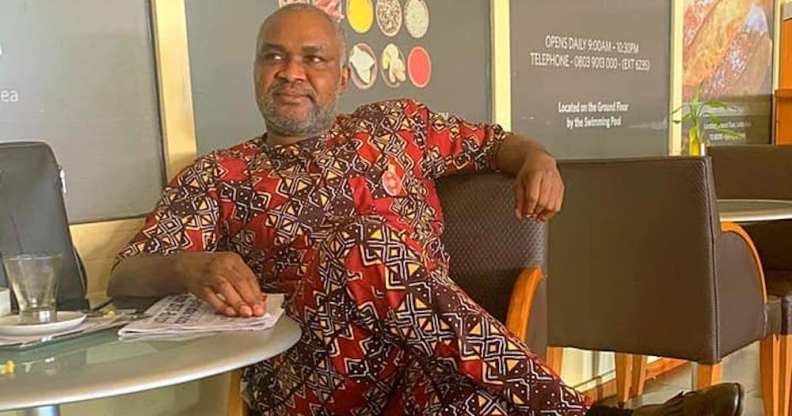Homosexuality ‘is an inch higher’ than incest, claims homophobic head of Nigerian human rights charity

Emmanuel Onwubiko, head of Human Rights Writers’ Association of Nigeria. (Facebook/ Emmanuel Nnadozie Onwubiko)
The head of a prominent human rights charity in Nigeria has claimed that same-sex relations are, morally, an “inch higher than incest”.
Emmanuel Onwubiko, the executive director of Human Rights Writers’ Association of Nigeria (HURIWA), gave a press conference condemning Amnesty International’s 2021 goals, which include making “same-sex relations legal in all countries”, and making “abortion legal in all countries”.
Onwubiko said the goals were a “deliberate struggle to rebrand… the African values on the sanctity of life and the sacredness of marital union” and that it would result in the “decimation of a fundamental truth, which is so crystal clear and even known by inveterate fools, that the human rectum is not for sex”.
He continued: “Homosexuality is a high pedestal immoral act, best imagined or possibly practiced exclusively by animals.
“Even, it is rated an inch higher than incest between close relatives, such as brothers and sisters, sons and mothers or daughters and fathers.
“Myriads of such sex misconducts are categorised among the taboos of the land and must be avoided with total disdain.”
“[Same-sex marriage] shows nothing but extremism in the abuse of nature and further deconstructs the African family template,” he added.
Onwubiko also used the opportunity to remind people that same-sex relations are strictly illegal in Nigeria.
Nigeria is among the most dangerous countries in the world for LGBT+ people. Homosexuality is punishable by up to 14 years in prison or the death penalty under Sharia law, and even discussion about LGBT+ rights is criminalised.
Last month, during inquiry into the corrupt, brutal SARS police unit in Nigeria, a victim described being molested, tortured and extorted when authorities suspected that he was gay.
SARS (Special Anti Robbery Squad) was created in 1992 to tackle armed thefts and similar crimes, however the unit quickly earned a reputation for human rights violations, unlawful killings and torture, among other illegal activities ignored – or worse – accepted by those in power.
Johnson Eze, a tailor from Benin, told the inquiry in Edo State that he was detained for three days until he was forcefully made to pay 100,000 Nigerian Naira (£200). During this time, he says he was beaten and abused repeatedly.

